First things first. Can we please stop opening movies (and episodes of TV shows) in medias res? It is no longer clever and it almost never works. The whole idea of throwing the audience into the middle of a story presumes that the “middle” we’re being thrown into is interesting enough that we’d want to know why and how they got there. Consider movies like The Usual Suspects and Mission: Impossible III. The opening minutes of those movies are rooted in a dramatic tension that both captures our imaginations and demands an explanation. Sweet Girl does none of those things.
This movie opens with the FBI closing in on their suspect, a bedraggled (but still beautiful) Jason Momoa who, for some reason, is standing on the roof of the PNC Park stadium on the North Shore of Pittsburgh, Pennsylvania. As the authorities close in, a cornered Momoa decides to jump off the roof into the icy waters of the Allegheny River below. We’re then presented with a title card that simply says “Years Earlier.”
Those first two minutes of Sweet Girl tells us absolutely nothing, relying instead on whatever affection we may have for Jason Momoa as a heroic everyman to make us care about what’s going on. There is no value to that prologue except to create a false sense of suspense. It is boring and it is lazy.

But What Is Sweet Girl About?
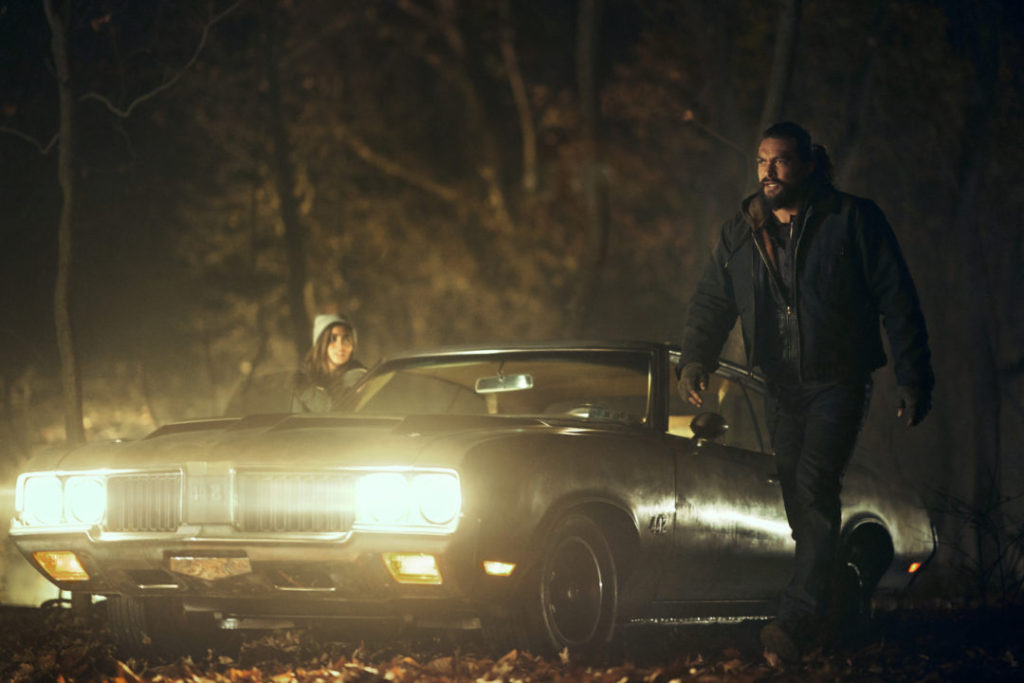
The flashback to those earlier years then sets up our primary conflict. This is when we’re properly introduced to Jason Momoa’s Ray, an ordinary blue-collar American (the kind who can take on trained assassins whenever he needs to), and his daughter Rachel (Isabela Merced, Dora and the Lost City of Gold). The both of them are tending to their wife and mother, Amanda, who is suffering from a rare form of cancer. Their doctor promises that help is on the way in the form of a miraculous experimental drug, but those hopes are short lived, as the pharmaceutical company suddenly, and without warning, pulls it off the market. Amanda dies, Ray rages, and so begins his vendetta against the evil corporation that denied his wife potentially life saving medication.
(There is an incomprehensibly idiotic moment when Ray threatens to kill the CEO of a pharmaceutical company on national television with absolutely no consequence whatsoever.)
Six months later, Ray takes a meeting with a journalist who promises to help him bring down the people responsible for his wife’s death. The meeting ends badly when a hitman savagely kills the journalist in broad daylight. Ray engages the killer in a brutal brawl, suffering a stab wound in the process.
Now, I get that this is supposed to be a revenge thriller, but those opening flashbacks are completely misleading in presenting this movie as something a lot more sensitive and insightful. When Ray has that clandestine meeting with the journalist looking to blow this conspiracy wide open, I was expecting something a little more meditative on Big Pharma, government corruption, and the plight of the common man. (You know, in between all of the kicking, and punching, and shooting.) Can you think of anything more relevant at a time when all of us, across the globe, are reliant on vaccines that are produced by a handful of mega-corporations?
What we get instead is a pretty generic thriller, one that shamelessly cribs its various set pieces from The Fugitive, Heat, the Terminator movies, and almost every other big Hollywood actioner you can think of – only without any of the style or finesse.
The time shifts are unnecessary. The numerous side quests they go on are there only to pad an already bloated runtime. And the entire plot of the movie is loosely connected by a string of violent confrontations that father and daughter encounter as they run from both the FBI and a ruthless hitman.
Throughout the movie, Ray is the prototypical grieving husband on a relentless quest for justice. He is the wronged and helpless hero looking to triumph against a broken system and the corrupt individuals who profit from it. Until, of course, he isn’t.
Which brings us to the movie’s absurd third act twist.
It Was Ra(y)chel All Along!
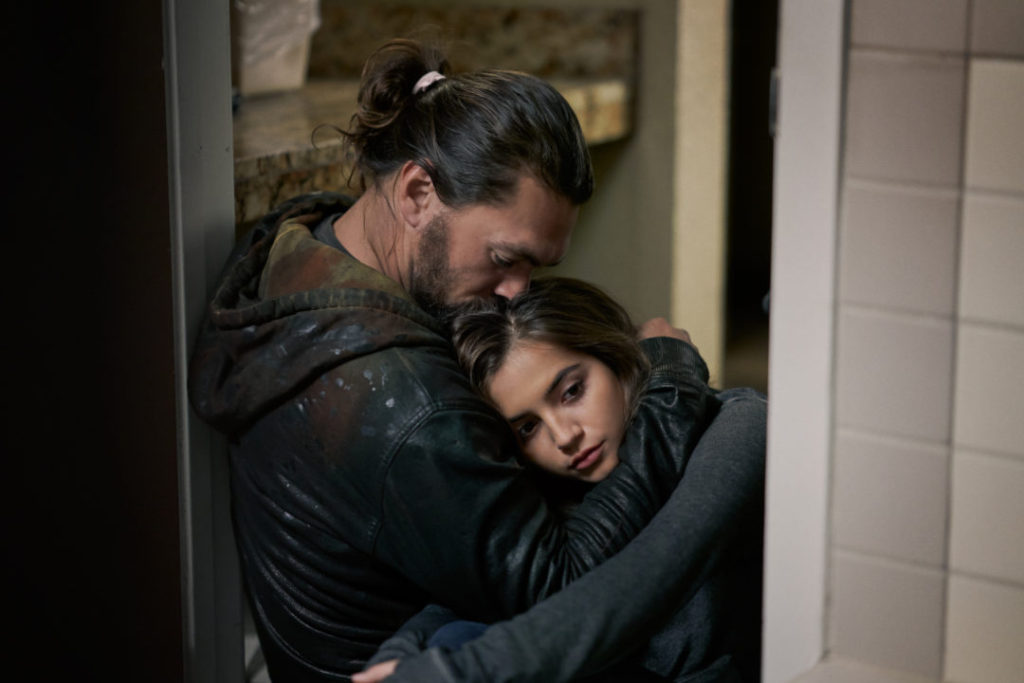
It turns out that Ray was actually dead, that the stab wound he suffered early in the movie was fatal, and what we’ve been seeing all along was Rachel’s revenge quest. The big third act reveal is that Ray who we’ve been following for most of this movie was nothing more than a figment of Rachel’s fractured personality, a consequence of the trauma of having lost both her parents in such a tragic and unjust manner.
Sure, there’s a moment early in the film (after a third title card that reads “24 Months Later”) which telegraphs Rachel’s unchecked rage, and there’s even Ray’s clunky narration where he rhetorically asks: “Parents and their children – where do we stop and they begin?”, but none of it comes close to justifying that sudden about turn. In fact, all it does is leave you with more questions.
Why is Jason Momoa’s Ray narrating the movie? Was it simply to trick the audience until that ridiculous reveal? How credible is it really that the diminutive Rachel is able to take on hired professional killers, personal bodyguards, and smarmy CEOs? Is 24 months of training at your local gym enough to make you dispose of trained assassins as if you’ve been doing it all your life? Yes, we know that Jason Momoa is hot shit, but wouldn’t this have been a better movie if it had just been about Isabela Merced’s Rachel the whole time? I mean, it’s called Sweet Girl for fuck’s sake.
Screenwriters Gregg Hurwitz and Philip Eisner seem so thrilled by their twist that they completely sideline all of the elements that could have made Sweet Girl stand out. There isn’t a shred of nuance here. Evil corporate bigwigs are just that. They spout nefarious, mustache twirling one liners, but are otherwise completely inert. The hitman feels lifted directly from No Country for Old Men. And the eventual reveal of a politician being the big bad is so predictable that it’ll have you throwing your hands up in frustration.
Jason Momoa is Hollywood gold. He is gorgeous, and charming, and someone you want to root for. But even he can’t save this uninspired clunker. The biggest travesty, however, is how much of a disservice Sweet Girl does to its title character. This should have been Isabela Merced’s movie. Hiding Rachel behind her delusions completely undermines the impact of trying to give her some agency later in the film. The twist does her a dirty when it should have made her the hero.
Sweet Girl is dumb. Don’t go wasting your life.


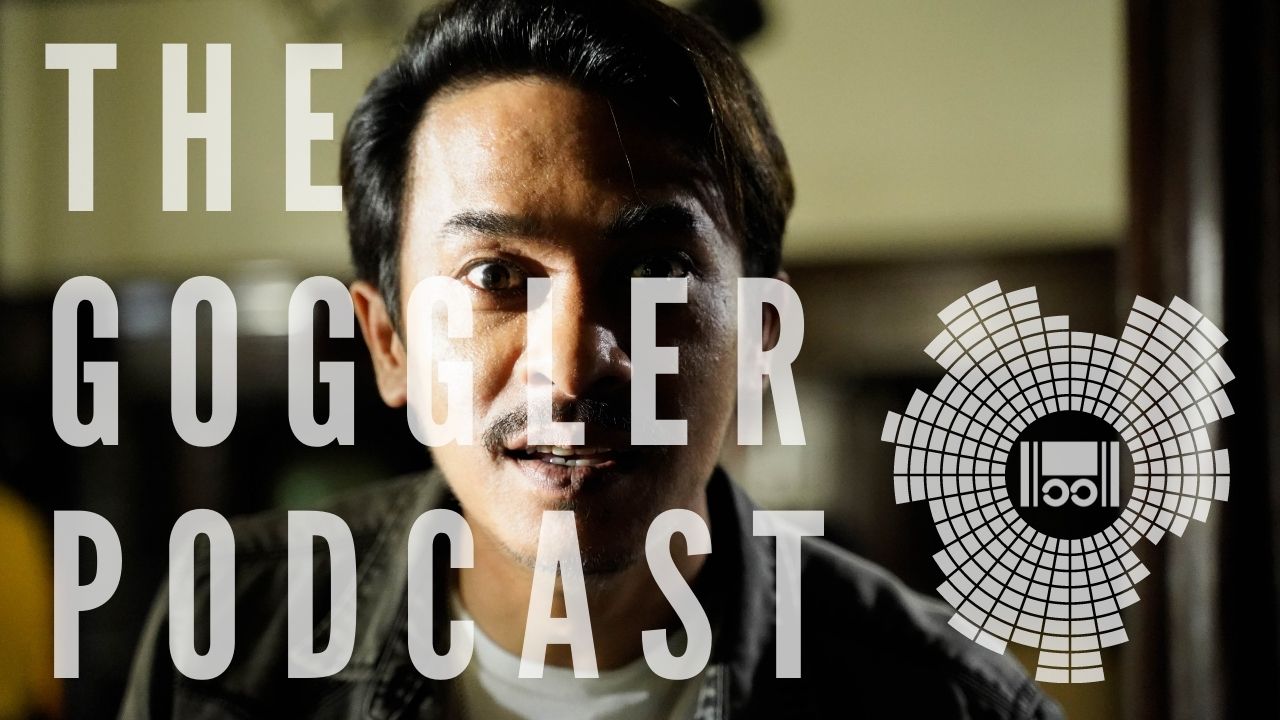


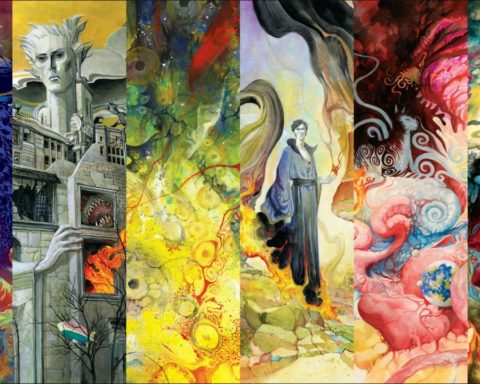
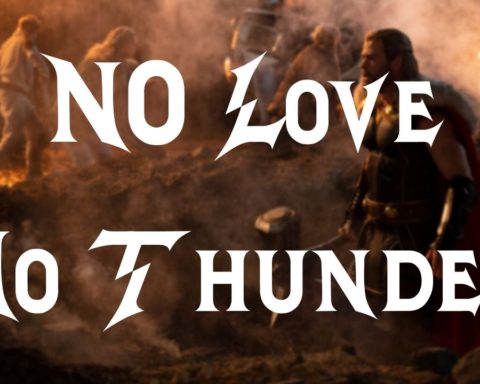
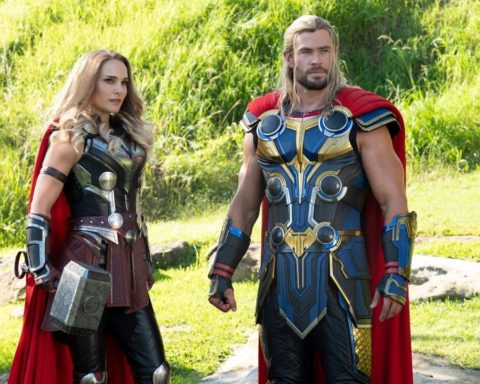

Follow Us